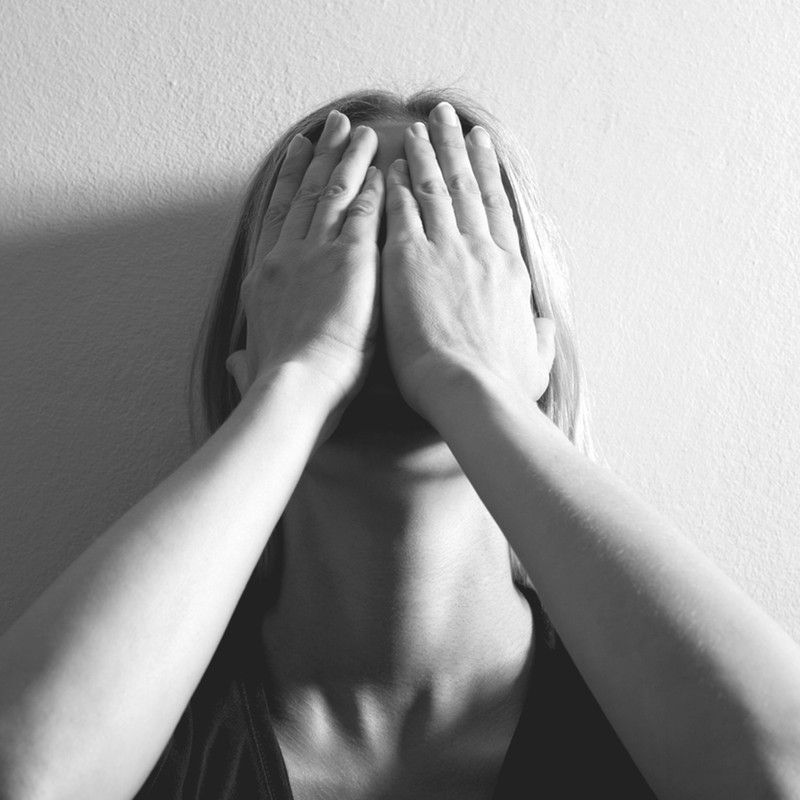How To Stop Feeling Guilty All The Time
Guilt is a common feeling for many of us. You may feel guilty for saying the wrong thing to your partner, for double booking and cancelling on a friend, for eating a chocolate bar instead of a handful of nuts, or for missing your morning workout. You may even feel guilty about much larger issues: you have more money than others; there are children in the world with no access to education; there are women with no access to sanitary wear. Dwell too much on these feelings and they can become overwhelming.
Guilt is a healthy and natural part of being human, says psychotherapist and counsellor Deborah Maloney-Marsden. “It shows us where we have had to make a hard choice and, with hard choices, difficult feelings arise,” she explains.
“With every choice we make, we lose something, which means that so much of guilt is grief. Grief over what could have been and loss of what was or what was not. We need to deal with guilt by understanding why we are feeling the way we do, and allowing ourselves the time to process the multifaceted nature of it.”
It’s important to understand different feelings of guilt and how they impact you. While guilt may be a part of our genetic make-up, it can morph into feelings of unworthiness and shame, which can be very detrimental to our health.
“Feelings of guilt can sometimes sit alongside an old programming that we shouldn’t take up too much space; we shouldn’t think of ourselves too much; and we shouldn’t say things that rock the boat or create any kind of untidiness,” says life coach Nicky Clinch. “But to live this way is so unnatural and incredibly disempowering. Everything about it tells us we cannot be who we authentically are. And so guilt appears in that discord between who we are, what we want, what we need, what we feel and the belief systems we’ve been taught we should be upholding. This has such a negative impact on our wellbeing and causes us to feel like we are always failing in some way. It drains us of energy, takes up far too much negative space in our minds, and is likely to lead us to do things and behave in ways that we don’t really want to.”
There are, however, a few things you can do to combat the worst excesses of guilt.
Become Aware Of Your Feelings
We often fall into the trap of pushing our feelings to one side in the hope we will quickly forget about them, but this isn’t always the best thing to do. “The first step is to become aware of the guilt itself,” advises Nicky. “This way you can see how much space it takes up in your mind each day.” Deborah agrees: “Sitting and connecting with our feelings and seeing where they sit in our bodies will allow those feelings to release and help the discomfort disperse.”
Write Down Your Thoughts And Feelings
Writing down your thoughts is often recommended by therapists and counsellors – for good reason. “Writing our internal processes down is a very useful way to express our feelings and it allows us to start to make sense of things,” Deborah explains. “Free-flowing journaling can be incredibly cathartic and therapeutic. We can also be more prescriptive and work on a more cognitive level by writing down a step-by-step reminder as to why we made certain choices or how things happened and what, if anything, we could do differently next time.”
Think About What Guilt Is Taking From You
Nicky says it’s also a good idea to write a list of what feelings of guilt are taking away from you. “This could be things like peace, joy, the ability to feel free in yourself, and the ability to use your time and energy to do what you love. Seeing it all on paper can make it really clear what impact guilt is having on your life and your future."
Articulate Your Feelings
Being open about feelings is important for letting go and moving on. “If it’s appropriate, you could express your feelings to those you feel guilty about,” Deborah suggests. “For instance, if you are feeling guilty for not being able to spend much time with a friend because you are busy, then say that. You don’t need to be able to fix things, but naming it and talking about it will help you move forwards.”
Let Go
Allow yourself to let go of feelings of guilt and do not let them drag you down. “Tying up any loose ends can be deeply healing,” says Deborah. “This encourages a sense of completion and allows you to feel as though you have done all you can. Talking isn’t always possible and in these instances you could always write a heartfelt letter or do something that means something to you or the other people involved. Allow this to be your ending. If guilty feelings come up again, that’s okay, but remind yourself you have done all you can around this matter and you have had to let it go.”
Go Easy On Yourself
Finally, don’t forget to be kind to yourself. “When feelings of guilt arise, choose to focus on love and gratitude instead,” Nicky says. “Be grateful for who you are and celebrate the simple fact that you’ve shown up that day and done what you can.”
If in doubt always seek medical advice.
DISCLAIMER: We endeavour to always credit the correct original source of every image we use. If you think a credit may be incorrect, please contact us at info@sheerluxe.com.






